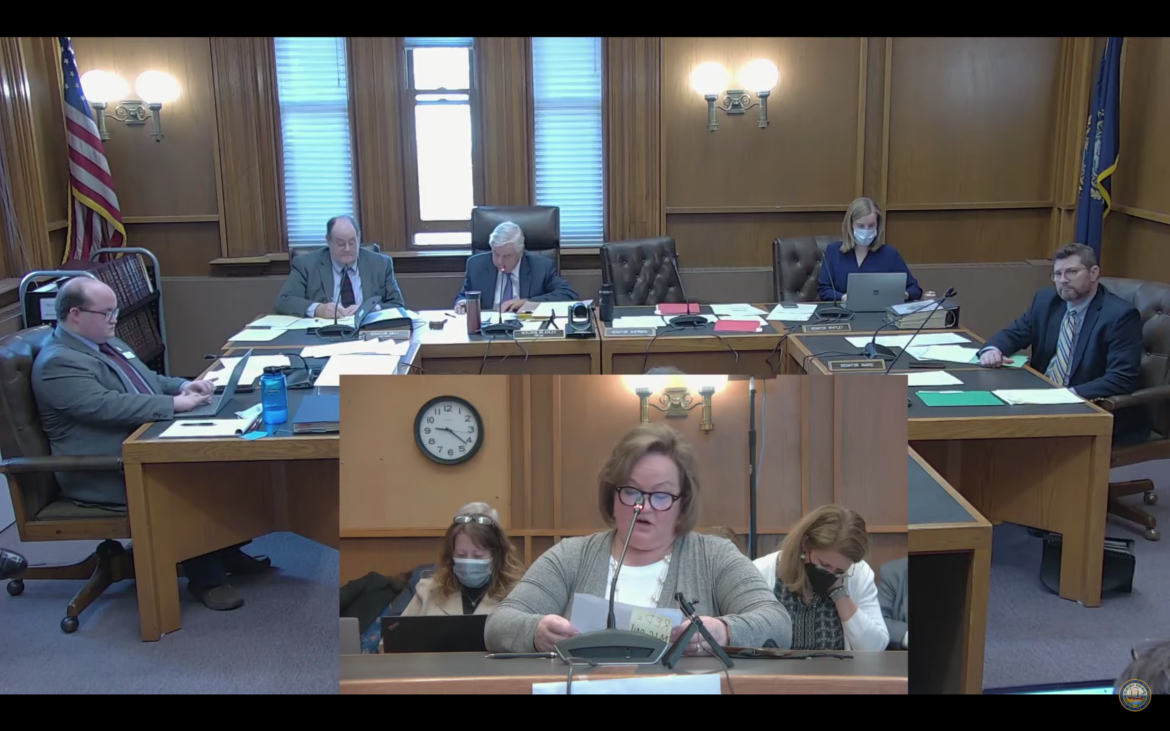By GARRY RAYNO, InDepthNH.org
CONCORD — Boosting the pay of frontline health-care workers would help facilities retain and recruit employees, a Senate committee was told Wednesday.
Senate Bill 332 would provide benefits similar to an emergency order during the early days of the pandemic. Under the bill, an additional $300 per week would go to full-time workers and $150 a week to part-time workers in the health-care industry.
Full-time is defined as 30 hours or more a week and the money for the program would come from the state’s share of the federal American Rescue Plan Act.
The bill’s prime sponsor, Sen. Kevin Cavanaugh, D-Manchester, said there has been a dramatic decline in the number of frontline health-care workers particularly in settings like long-term care facilities.
He noted the Hillsborough County Nursing Home currently has 144 open positions, 109 in the nursing department alone.
The previous program under the emergency order, was not as successful as hoped for recruiting new frontline health-care workers, Cavanaugh said, but was very successful for retaining workers.
“This is something to try to help this whole group,” he told the Senate Health and Human Services Committee.
While the bill did not have a financial analysis of potential costs, committee chair Sen. Jeb Bradley, R-Wolfeboro, asked the Department of Health and Human Services to come up with an estimate noting it should be fairly easy to determine from the previous program.
John Williams, legislative liaison for the agency, said he would work with the Department of Employment Security, which would distribute the funds, to come up with an estimate noting there is no need to reinvent the wheel.
According to the Governor’s Office for Emergency Relief and Recovery, the long-term care stabilization fund distributed about $82 million in federal CARES Act money but included more than just the additional stipend for frontline workers.
Bradley noted the use of ARPA funds usually has not been done through legislation but noted the bill should be reviewed by Senate Finance if the Senate moves forward with the bill.
Under the bill as presented, the money would be available to frontline workers for Medicaid service providers and contracted providers for the federal and state health-care program.
Several amendments were proposed to expand who would be eligible under the program.
Committee member Sen. Tom Sherman, D-Rye, noted that under the older program assisted living facility workers and some others were not eligible and they should be included.
He suggested rather than have a listing of frontline workers eligible for the additional payments, as several industry lobbyists proposed, an amendment that is inclusive would be more appropriate.
Williams agreed and said that would give the agency more flexibility in determining who would receive the stipend.
Under the bill, the Health and Human Services Commissioner would determine who would receive the additional weekly money.
Under the bill, the program would end Jan. 1, 2023.
Bradley said he would like the additional information available in two weeks when the committee meets again. The Senate is taking its traditional winter vacation next week.
Along with Cavanaugh, nine other Senate Democrats sponsored the bill.
No one testified in opposition to the bill, but lobbyists for various health-care providers did support the bill.
Garry Rayno may be reached at garry.rayno@yahoo.com.





